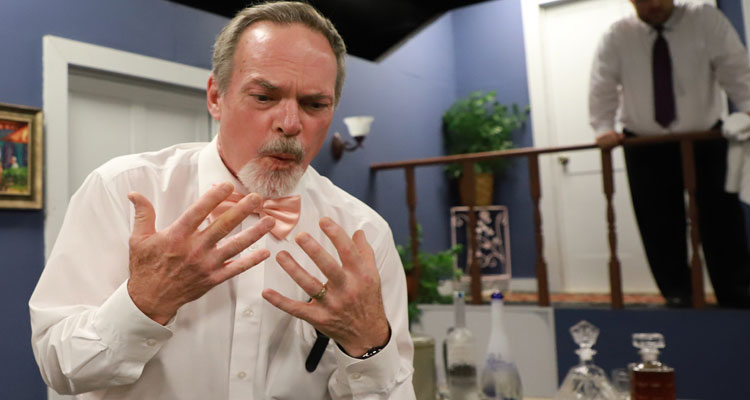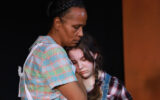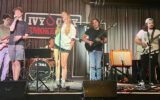As a former radio DJ and news reporter, Mark Harrelson is no stranger to the
entertainment industry. Harrelson’s stage debut was in Rumors by Neil Simon, put on by The
Little Theatre of Danville in 1993—a play he has had the pleasure of working on three times now.
Harrelson gained his interest in acting as a young child, while watching westerns and variety
shows with his family. He says, “I could see how much enjoyment my family got out of watching those shows. I learned to appreciate how actors and storytellers created characters that brought such enjoyment to the audience and wanted to learn those skills.” That is
exactly what he did.
Harrelson says there are multiple parts to preparing for a role. The first is to “read the
entire script, all lines, including stage directions, several times.” This allows him to get an idea of
the flow of the play, and to learn each of the characters well. He claims this step is
crucial so if something goes wrong while on stage, Harrelson knows the play well enough to ad-lib in a way that would make sense to allow “the show can go on.” Reviewing his cues and lines thoroughly is the next step to help deep root them in his brain. This all must be
done whilst piecing together the “person” his character is to become.
Though it is hard to pick, Harrelson says his favorite roles he has played would
be Tom Wingfield in The Glass Menagerie, and Clarence Oddbody in It’s a Wonderful
Life: A Live Radio Play. In reference to It’s a Wonderful Life, he says, “being able to share
the stage with a wonderfully talented cast, and having it portray how a radio play was done in
radio’s ‘Golden Age’ is a real treat.” With The Glass Menagerie, this show was special to him
because “I was lucky enough to work with two legends of theatre in Danville: Barry Haulsee,
director, and the incomparable Liz Goodman as Amanda Wingfield, both of whom taught me a
lot about performing on stage.”
Patience is the one word Harrelson claims to be the most important quality for an
actor to possess. “Patience with fellow actors, patience with the director, and patience
with oneself. Remember, you are all working together to take words written by someone you
don’t know, adding in actions you may never have undertaken yourself, and working to turn it all
into a believable story for the audience. The process takes time and can be intense.” While
patience is most important, he also shares that it is helpful to have “a good memory, quick
reflexes, a voice you can make heard in the back row, and a willingness to look absolutely
ridiculous (if necessary).”
Harrelson says you could ask a dozen different actors what the hardest thing about
acting is, and you would get a dozen different answers. For him, the hardest part was
“building up the nerve to go to that first audition in 1993. I had great doubts that I was ‘good
enough.’ Frankly, I still feel that way, but I’ve also learned the truths that ‘if you don’t try, you’ll
never know,’ and that life, in general, is full of challenges, on stage and off. If you want
something badly enough, you have to go for it, or you’ll never know what you could achieve.”
When asked if he had any advice for aspiring actors, Harrelson jokes, “I’m a Boomer, of
course, I have advice.” His best advice is to, “Read everything you can get your hands on. It
helps you learn the flow of language. Be observant of others. You may notice mannerisms, an
accent, a gait, a funny turn of phrase or something else that you can incorporate into
a future character role. Go to plays, watch good movies, study what the actors do to create their
characters. And, most importantly, build up the moxie (a real word, you can look it up) to go to
that first audition.”







